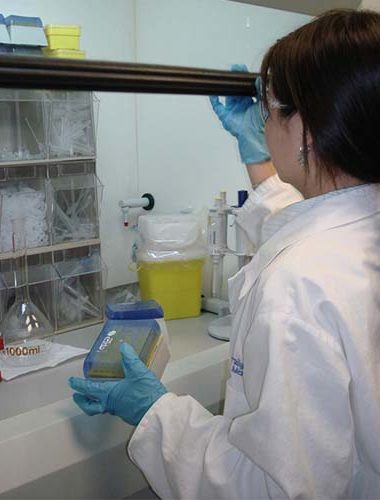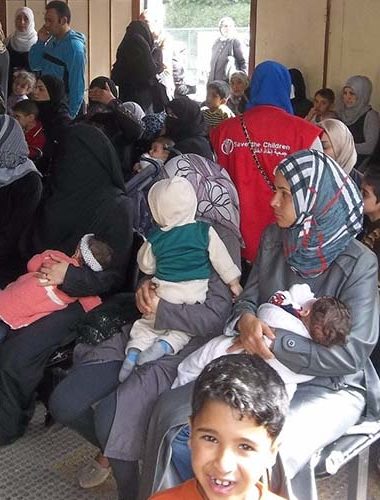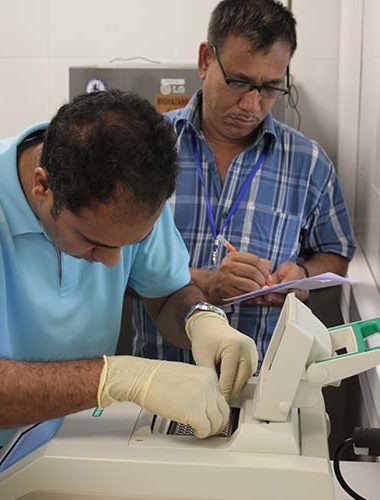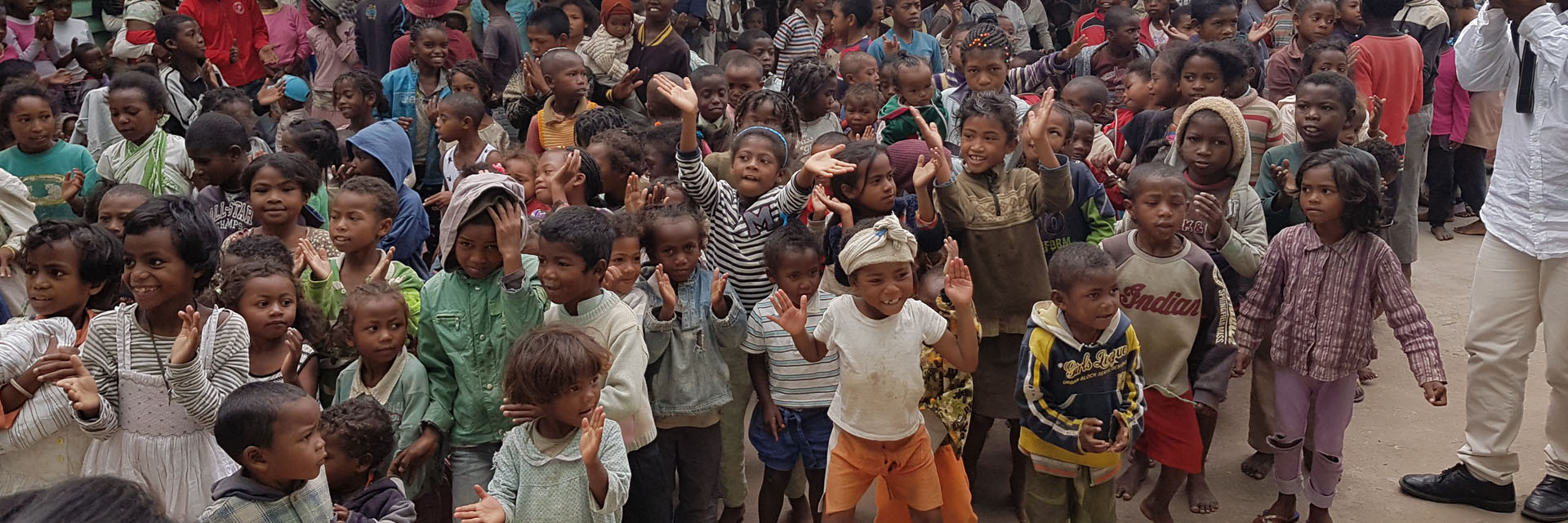Our research focuses on four main disease areas that have a major impact on public health in developing countries:
- Respiratory infections
- Foodborne (enteric) diseases
- Emerging diseases
- Antimicrobial resistance
We also participate in smaller projects targeting infectious diseases that are a priority at the local level, which can also serve as incubators to launch future collaborative programs (research projects on meningitis, leprosy, schistosomiasis, HIV/AIDS, etc.).
Respiratory Infections
Pneumonia (an acute respiratory infection) is a major public health issue in developing countries, and the number one cause of infant mortality in the world. Several research programs are currently being conducted within the GABRIEL network on bacterial and viral co-infection, as well as the incidence and etiology of pneumonia. In parallel, the Emerging Pathogens Laboratory is developing molecular tests to identify the serotypes of the main bacterium involved – Streptococcus pneumoniae – in clinical samples: the real-time multiplex PCR test and molecular strain typing using xTAG® technology by Luminex®.
Collaborative pediatric study
In 2010, the Mérieux Foundation launched and funded a vast multi-center epidemiological study in eight countries on three continents. The goal was to identify the viral or bacterial agents responsible for severe pneumonia in children under the age of five. The results were published between 2016 and 2017, and show that close to half of pneumonia cases were caused by Streptococcus pneumoniae, while the others were viral in origin.
Foodborne Diseases
Typhoid fever is a serious infection resulting from the consumption of food or water that was contaminated by bacteria from the Salmonella genus (serovar Typhi, or less frequently Paratyphi A, B or C). Typhoid has a high mortality and morbidity rate in developing countries, where hygiene is poor.
To address the lack of reliable screening tests that are easily transferrable to developing countries, and at the request of the Bill & Melinda Gates Foundation, our Emerging Pathogens Laboratory is developing a molecular test to diagnose typhoid from blood samples.
The Mérieux Foundation is part of the COMPARE project, funded by the European Union’ Horizon 2020 program, which seeks to develop a global platform to quickly identify the pathogens responsible for enteric disease epidemics.
Emerging Diseases
Recent decades have been marked by the emergence or reemergence of highly pathogenic infections that pose an epidemic risk. We are participating in several research programs on these public health threats, including:
- Research on the Crimea-Congo virus that causes severe hemorrhagic fevers: a study of the virus pathogenesis in partnership with the French Armed Forces Biomedical Research Institute and the P4 Jean Mérieux-Inserm Laboratory,
- A study of the innate immune response as part of a CIRI (International Center for Infectiology Research) collaborative project.
Multidrug-resistant tuberculosis
As the number one cause of death from infectious disease in the world, tuberculosis is the focus of several research projects seeking to better understand its modes of transmission and resistant forms, the key to implementing effective prevention and control measures. In 2015, among the 10.4 million new cases of tuberculosis that were recorded, it is estimated that 480,000 people had multi-resistant tuberculosis.
International cross-disciplinary initiatives
We are also part of several international initiatives to monitor and fight against emerging diseases. These include:
- ZikaPLAN, a comprehensive approach to tackling the Zika threat, funded by the European Union’s Horizon 2020 program;
- EVAg (European Virus Archive global), a European Union financed consortium of 25 institutions, which has extensive virology expertise and is devoted to the collection, characterization, production and distribution of viruses and associated products;
- the Partnership for Dengue Control (PDC), an alliance of international organizations and experts, whose goal is to eradicate dengue fever using an innovative approach based on combined vaccination and control of mosquitoes;
- and the GloPID-R program, also funded by the European Union’s Horizon 2020 program, which is the only initiative in the world that unites research funding organizations with the aim of accelerating the response to new or re-emerging epidemics with pandemic potential.
Projects

Research - Asie
Molecular Typing of Tuberculosis
En cours
Analyzing the epidemiology of tuberculosis in Southeast Asia to improve disease control.
Partners
Country

Research - Moyen-Orient
PEARL
Terminé
Understanding the causes of pneumonia in refugee populations in Lebanon to improve prevention and treatment.
Partners
Country

Research - Global
Typhoid Screening
En cours
Validating a new typhoid screening test for eradication programs.
Partners
Country

